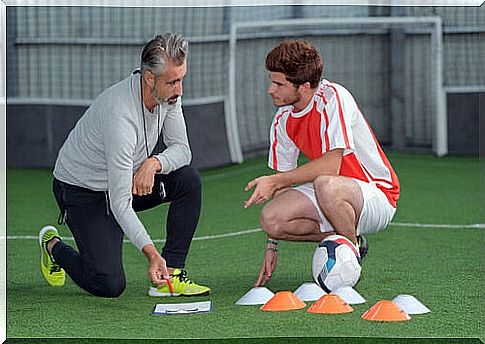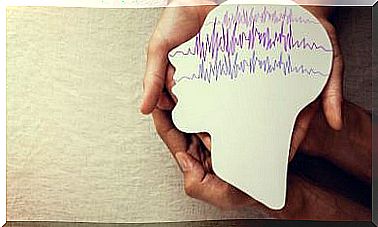The Psychology Of Football

The practice of any sport involves many psychological aspects, such as concentration, memory, coordination and good humor. These elements, although they are necessary in all physical activities, acquire a special complexity in group sports, so, in these lines, we will focus on the psychology of football, understanding that the aspects that we indicate could be identified in many others sports in which there are also teams.
To start with the framework, what is sports psychology? We can say that it is that drawer in which all the psychological aspects that influence sports practices fit. These factors, in turn, have a lot to do with performance and with the way we face, within the competition, the difficulties posed by circumstances, the rival or ourselves.
The relationship between the coach and the athlete
One of the most important aspects in soccer psychology will be the relationship that exists between the coach and the athlete. In this sense, the coach is a figure of great importance so that the collective prevails over the individual.
He will be the one to propose the strategies to follow, establish the training plans and sometimes resolve conflicts. Therefore, their work transcends far beyond what is tactical preparation. His figure is so important that his intervention can make a team much stronger (if successful) or much weaker (if unlucky).
Regarding the types of relationship that can exist between the coach and the athlete, this can have a positive approach and a negative approach.

Positive approach
When the relationship between the two figures is positive, it is easier for the coach to reinforce all the behaviors of the athletes that are in tune with the group and bring it closer to its goals. Constructive criticism and moral support are elements included in this type of relationship.
Negative approach
On the other hand, we can find a negative relationship between the coach and the athlete. This occurs, for example, when the coach tries to correct the mistakes of his athletes through non-constructive criticism or punishment. It is likely that this type of relational dynamics end up undermining the athlete’s confidence: he can understand the objectives set, but the coach is no longer a figure of help to achieve them.
Beyond these two types of relationship, there are a series of factors, which as main, explain much of the influence, positive (when it is well applied) or negative (when it is badly applied), that sports psychology can play:
- The coach’s behavior: in the first place, it is logical to think that the way in which the coach treats his players will be a fundamental aspect to ensure that they have a correct sports development.
- The perception of this behavior by the whole team.
- The sports experience of the coach: In addition to the way the coach treats his team, his knowledge of the sport and his ability to plan the different stages towards the desired goals will also increase or decrease the chances of success.
Aspects to consider in soccer psychology
Within soccer psychology, there are a series of aspects to take into account with relevant psychological implications:
- The motivation. First of all, it will be very important that footballers are motivated and want to achieve their goals, both for personal benefit and for the benefit of the whole team. This motivation can be centered on the personality of each athlete, on the situation they face at all times, or on a mixture of both.
- Self-confidence. Self-confidence is another aspect of great importance for a footballer and, by extension, the entire team, to achieve their goals. Through self-confidence, athletes will be able to reinforce their positive emotions, reduce stress, improve their concentration and face team strategies more efficiently.
- Concentration. By its influence, we could almost say that it depends on self-confidence. Concentration will be a fundamental element in a soccer game, as well as during training sessions. A focused team will be able to follow the coach’s strategies in a more efficient way.

In this sense, attention is one of the most important aspects in football. In the end, it is the game that makes a player’s position good or bad at a given moment. Thus, your ability to read the game will largely depend on how attentive you are.
Those mentioned are just some points in which sport psychology can contribute to a group and a director or coach in order to achieve certain objectives. The truth is that in sport, physically and tactically there are less and less differences, so that factors such as psychology itself are the ones that often end up tipping the balance of the game.









